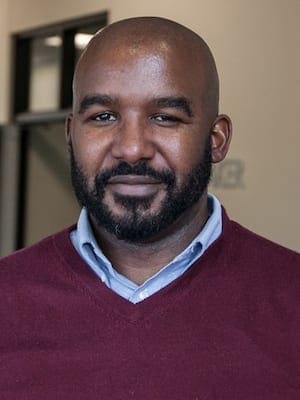Like most people who have seen, heard or read about the series of events that have occurred in Ferguson, Missouri, I have been frustrated and disheartened at the loss of a life, the unnecessary theft and destruction of property, and the weakening of trust between residents and government.
I have also struggled with how I should feel in response to such an emotion-evoking series of events.
I struggle because I view the events that have transpired from what I think is a unique lens.
I am African-American. I have lived the majority of my life in St. Louis and am familiar with most of the smaller municipalities outside St. Louis.
I have had regular, first-hand experience as a youth, and now a 40-year-old father of two, of being pulled over by police officers of various departments in the St. Louis region.
I regularly experience the fear of driving through certain areas knowing that I will be pulled over by police simply because they think I don’t belong in the area.
These officers don’t care, or take the time to find out, that I am a pastor, a college professor and the executive director of a community-based service agency that has sought to improve the lives of people in North St. Louis City for 21 years. None of this is important to them.
In defense of these officers, I understand why none of this is important. I was a St. Louis City police officer for five years and my main concern was staying safe and making it home to my family in one piece every day.
I patrolled one of the city’s most dangerous neighborhoods. I also worked in a special undercover detail driving an unmarked car in order to execute search warrants for drugs and guns on a weekly basis.
During my tenure on the department, I learned that some citizens didn’t necessarily care about me as an officer or person.
These people didn’t care that I was the interim pastor of a church in the neighborhood, or a father, artist or mentor to urban youth.
They only saw the uniform and had a preconceived idea of who I was and what I should do for them.
On multiple occasions, I helped other officers defend themselves against people who attempted to take their lives.
I was also helped by multiple officers as I defended myself against people who attempted to take my life.
Because of these experiences, I will never second-guess the officer who is at the center of the firestorm.
Having been in what I perceived were life-or-death situations, with only a few seconds to respond, I can sympathize with the officer’s actions to defend himself.
That doesn’t mean that I agree with, or justify, his actions. It only means that, if he believed that his life was immediately threatened, I can understand why he responded with force.
What is important to me right now is how we respond to the fallout from this event.
What personal stance can we all take as we wait to find out what really happened on that fateful day?
I have three simple suggestions that I believe can help us all.
First, allow your perspective to be influenced by the whole of information and not just bits and pieces.
We all want to know what happened and why. Unfortunately, we will not receive all of the answers immediately.
Don’t let your opinion be overly influenced by a lack of information and disinformation.
As much as we may want to trust news programs, bloggers and people that tweet, we have to remember that they all have their own agendas when writing.
Whether intentional or not, key information sometimes gets left out in order to influence our thinking.
Second, we have the opportunity to respond to all of this through a lens of love and compassion.
We don’t have to hate those who don’t think and feel like we do. We don’t have to vilify one another because we hold differing opinions about all of the different social and economic aspects surrounding these circumstances.
We don’t have to look for new enemies, especially during a time when unity and cooperation are needed more than ever.
Finally, as much as this event is about racial profiling, and about teaching our children the value of earning what they have instead of taking and stealing from someone else, and about respecting authority, this is also about the unseen spiritual fight that has been waging from the earliest times.
The fight between the forces of spiritual darkness that seek to control this world and have its inhabitants devour each other and the present yet coming Kingdom of God that seeks to shape all things into God’s loving image.
What Ferguson, Missouri, and other cities and countries are experiencing is about more than just economic inclusion and racial equality. It’s about who will control this world and our lives for time and eternity.
When we look at it that way, we can see who the real enemy is.
 Terrell Carter is minister of administration at Third Baptist Church in St. Louis and director of the Foundations in Ministry program for Central Baptist Theological Seminary in St. Louis.
Terrell Carter is minister of administration at Third Baptist Church in St. Louis and director of the Foundations in Ministry program for Central Baptist Theological Seminary in St. Louis.
A pastor, author and educator living in St. Louis, Missouri, he is the author of several books, including The Gospel According to Broadway and Taking Apart Bootstrap Theology: Gospel of Generosity and Justice.

